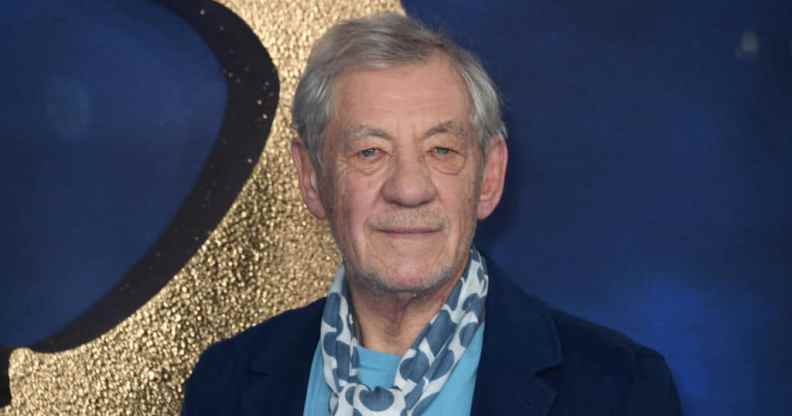Ian McKellen reflects on how MI6 lifting ban on gay spies quietly changed course of LGBT+ rights

Sir Ian McKellen. (Getty Images)
Ian McKellen has said that MI6 lifting its ban on gay spies helped the overall battle for LGBT+ rights.
Until 1991 the UK’s covert foreign intelligence service refused to allow LGBT+ people in its ranks because of the misguided view that they would be more susceptible to blackmail than straight people.
That ban was finally lifted 30 years ago by prime minister John Major, and the service issued an apology for its treatment of queer people on Friday (19 February).
Reflecting on the landmark policy change during a virtual discussion with Richard Moore, chief of MI6, McKellen reflected on the harsh climate for queer people in the late ’80s and early ’90s.
McKellen said the year 1991 began with him being given a knighthood, making him the second openly gay person in history to be given such an honour.
The climate at that time was still incredibly harsh for queer people – but there were “little signs of crocuses coming up”, McKellen said.
“One, personally, my knighthood, and second, the decision of your service,” he said.
The LGBT+ rights activist said he met then prime minister John Major after they both attended a play at the National Theatre, and they ended up going out for dinner with a group of people afterwards.
It was the perfect opportunity to do some “lobbying”, McKellen said,
“I rather pathetically said I wanted to talk to him about social issues. It was a time when to allow ‘gay’ to come out of my mouth to someone who should be treated with respect like a prime minister didn’t seem quite right.”
Ian McKellen praises MI6 for bring down barriers against LGBT+ rights.
The meeting was granted, and McKellen learned that there were other plans to liberalise laws around queer people, such as plans to equalise the age of consent.
“So the service was rather in the vanguard, is the point, and having so boldly accepted that there had been injustice in the past within its own organisation it gave heart for people to think, ‘Well perhaps you can spread that principle of honesty and equality to other areas of life.’
“It took some time, but I do think without the initiative of the service so early on in this battle, perhaps things wouldn’t have gone as well as they did.”
Ian McKellen continued: “There is no employer of any merit who will not encourage their gay employees to be themselves at work and not hide, and all the major companies now accept that, but I do think it was your service that was the first to do that, so you were setting an example.
“That’s the way in which society is interconnected, isn’t it, that injustice in one area is deeply related to injustice in another, and walls begin to fall down when one brick is removed.”
He said some people will try to dismiss MI6’s apology, but added: “I think symbols do matter… I hope your apology is received with the enthusiasm it deserves.”
In his apology, Moore admitted that “secret does not mean unaccountable”.
“Committed, talented, public-spirited people had their careers and lives blighted because it was argued that being LGBT+ was incompatible with being an intelligence professional,” he said.
“Because of this policy, other loyal and patriotic people had their dreams of serving their country in MI6 shattered. This was wrong, unjust and discriminatory.
“Today, I apologise on behalf of MI6 for the way our LGBT+ colleagues and fellow citizens were treated and express my regret to those whose lives were affected.”

